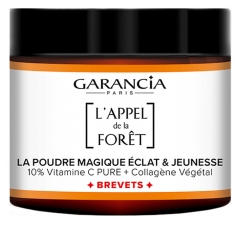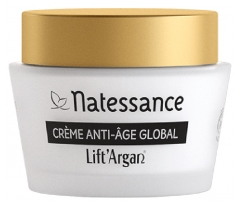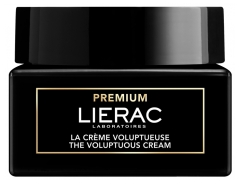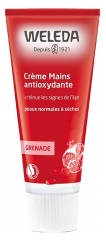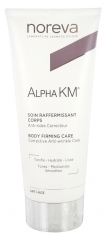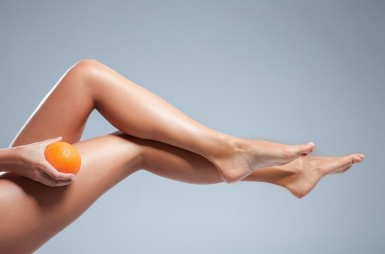Anti-ageing cream:
declaring war on skin ageing!
Written by Marion, Aesthetician/Cosmetician | published on | updated on 15/04/2024

Skin ageing is an inescapable fact of life, but nowadays there is a range of ways to keep the inevitable at bay for as long as possible. Indeed, anti-ageing is now a specialist field within the medical and cosmetic surgery sectors. But do you really need to go under the knife to give your skin a new lease of life? Thankfully, the answer is no. These days, many skincare products can breathe new life into your skin thanks to their powerful active ingredients. What are they and how are they used? Here we focus on the most effective anti-ageing creams to incorporate into your beauty regime.
Explaining and preventing skin ageing
Why and how does the skin age?
Skin cells undergo a regular renewal process every 28 days. As we age, this skin regeneration slows down, leading to dry skin which can cause wrinkles to develop.
What are the stages in the skin-ageing process? At what age does it begin?
- Around the age of 30, the skin begins to produce less sebum. Collagen, which should offer some resistance to stretching, no longer works as effectively, resulting in a loss of elasticity. This leads to the appearance of the first wrinkles around the mouth and eyes.
- People often notice a change in their skin pigmentation during their 40s. This change is brought about by a reduction in melanocytes, the melanin-producing cells that form a protective barrier of pigment against the sun’s harmful rays. The skin also becomes thinner and more fragile.
- This process starts to accelerate as we reach our 50s. The entire body continues to lose muscle tone and firmness. For women, hormonal irregularities associated with the menopause also have an impact on skin quality.
- As we enter our 60s, the skin continues to thin, lose its suppleness and become increasingly dry. At the age of 80, lack of moisture in the skin makes it increasingly crepey.
This physiological process is part and parcel of the way the human body works. While it may be possible to delay it, it cannot be avoided. At the same time, other external factors can cause skin ageing to accelerate.
What factors cause skin ageing?
Environmental factors: sunlight and pollution
The sun is the primary cause of premature skin ageing. It dries the epidermis and forces the skin to produce melanin in order to protect itself. The process puts skin cells under enormous pressure and stress. If skin is repeatedly exposed to the sun without protection, the process starts all over again and the skin’s defence and repair mechanism eventually changes it. The appearance of brown or white marks is one consequence of this cellular dysfunction.
Atmospheric pollution is also responsible for premature skin ageing. Notably, it is the microparticles in polluted air that reduce our skin’s immunity.
Lifestyle factors: smoking and alcohol
Smoking is the number 1 enemy of healthy skin. It has a dehydrating effect. Smoke also causes poor circulation of the blood, impeding the skin’s natural healing properties. Alcohol also causes dehydration and therefore leads to dry skin.
Oxidative stress caused by ageing factors
The different types of environmental damage listed above have one thing in common: they trigger oxydisation in the skin cells. In response, the skin generates free radicals. The build-up of free radicals is partially to blame for premature skin ageing.
Effective steps to keep skin looking healthy and young
There are many products available which will give your skin every chance of remaining beautiful and extend its youthful appearance for as long as possible (we will come back to this later on). Nevertheless, there are also some simple habits you can adopt that will make a big difference:
- Eating a healthy, balanced diet;
- Keeping well hydrated and
- Staying protected in the sun.
Anti-ageing products: from preventing the first wrinkles to a full face lift
When can you start using anti-ageing products?
You can start using anti-ageing products as soon as the first signs of ageing appear around the age of 30. However, the active ingredients in products designed for this early stage are completely different to those contained in products for mature skin.
At the age of 30, wrinkles and fine lines are minor and are usually found around the eyes where the skin is thinner and therefore more delicate. These signs of ageing tend to be the result of dehydration, which is the most important factor in ageing. Oxidative stress is also a factor that can trigger the appearance of the first wrinkles.
The purpose of these products is therefore to essentially combat:
- the lack of hydration experienced by the skin;
- the effect of free radicals.
What are the active ingredients contained in anti-ageing products?
The following main active ingredients are used to combat premature skin ageing:
- Hyaluronic acid : a powerful moisturiser found naturally in the skin. It decreases over time, which results in dryness;
- Vitamin C : it is capable of destroying free radicals. It stimulates collagen activity;
- Glycolic acid: its exfoliating properties enable the epidermis to remove dead skin. It replenishes the skin and gives it better elasticity;
- Retinol : it increases the thickness of the skin and regulates melanin production.
The face, body and hands: find the ideal anti-ageing cream based on the area you wish to tackle!
You should choose your skincare products according to the area you wish to tackle. Which products should you choose based on the part of the body you wish to target?
- The face: this is the first area to show the signs of ageing because it is the part of the body most exposed to environmental damage. It is also a very delicate area which can be prone to blemishes. Furthermore, everyone’s priorities will be different depending on their individual circumstances. While some people will need to replenish their skin, others will wish to focus on detoxifying it. To help you find the ideal strategy in the battle against the signs of ageing, Cocooncenter has a range of anti-aging products for the face tailored to meet each individual's needs.
- The hands : along with the face, the hands are also regularly exposed to environmental damage. At Cocooncenter, you will find our full range of dedicated products.
- The body : While it may be less exposed, it is also prone to an age-related loss of firmness and tone. To help you combat this problem, Cocooncenter offers a range of firming skincare products.
What is the difference between anti-ageing products and anti-wrinkle products?
It is easy to confuse anti-wrinkle and anti-ageing products. The difference is in the effect you wish to achieve: - Anti-ageing products tackle the global effects of ageing to prevent wrinkles from appearing. - Anti-wrinkle products target their action on wrinkles that have already appeared.
Skin ageing is a fact of life. We cannot escape it. However, with good habits and appropriate skincare products, we can thwart the passage of time and gain several years’ reprieve for the skin.
Skin ageing: three key takeaways:
- Lifestyle has a direct impact on skin quality;
- The first signs of ageing generally appear around the age of 25-30;
- The sun is the major factor in skin ageing.




